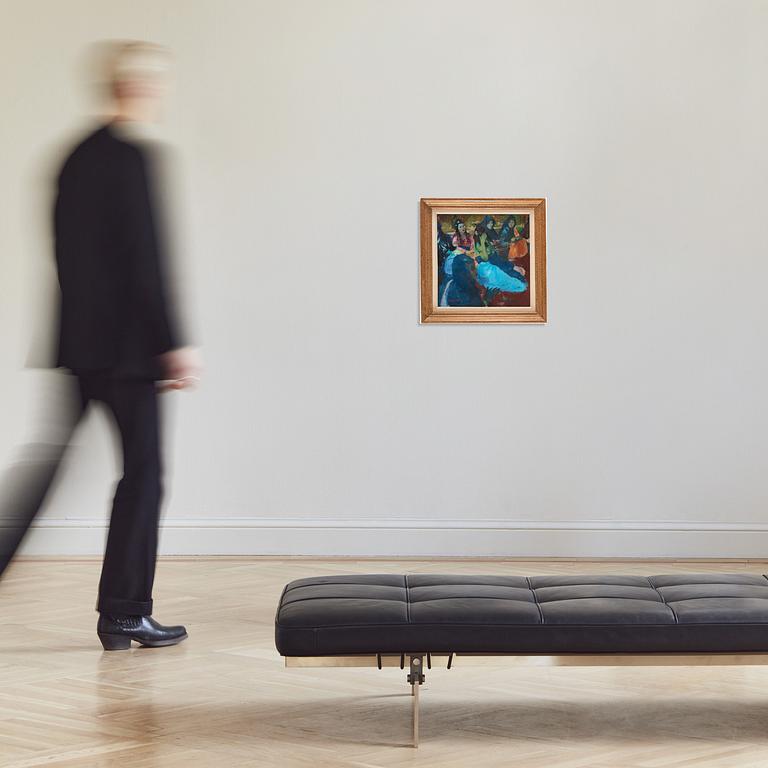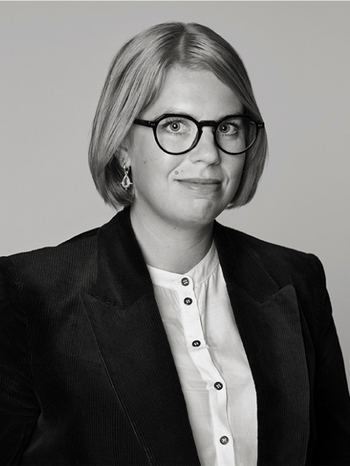Jacques Majorelle
Dancers in Goulimine
Signed J. Majorelle. Executed around 1950. Panel 48.5 x 48.5 cm. A certificate of authenticity executed by Amélie Marcilhac, Cabinet Marcilhac, Paris is included with the lot.
Muut tiedot
Jacques Majorelle was the son of the famous art nouveau furniture designer Louis Majorelle. He received his art education at the Ecole des Beaux-Arts in Nancy and later at the Académie Julian in Paris and first exhibited at the Salon des Beaux Arts in 1908. In 1917 he traveled to Morocco and fell in love with the colors and light of Marrakech where he settled permanently. In 1923, Majorelle bought a piece of land and began to plant a lush garden. He originally built a house, Villa Bou Saf-Saf, in Moroccan style, but in 1931 the architect Paul Sinoir was commissioned to design a Cubist villa on the site. In 1937, Majorelle painted the villa in a unique bright, shade of blue after being inspired by the blue tiles that were common in southern Morocco. His garden and house, which were sold to fashion designers Yves Saint-Laurent and Pierre Bergé in the 1980s, are today a popular tourist destination in Marrachech.
Majorelle used the blue color, which now bears the name Majorelle Blue, not only to his house and garden but also in his paintings. In his artistic oeuvre, Majorelle adopted a revolutionary style and experimented with mixed media techniques, for example, he used powdered metal pigments to give the surface of his paintings a distinct and reflective look. For his motifs, he drew inspiration from the local Moroccan inhabitants, their clothes, and traditions as well as landscapes in Marrakech and around the Atlas Mountains. The work to be sold depicts dancers in traditional clothing that he saw during excursions in the Goulimine area.


















































